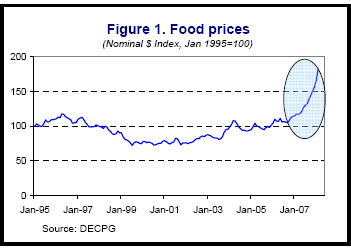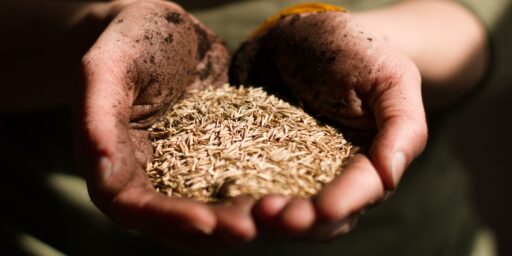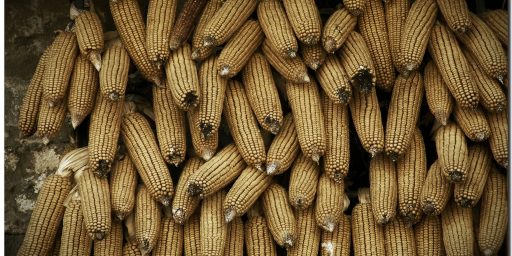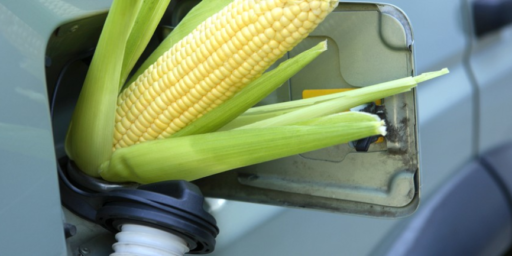World Food Prices Up Sharply
Via the BBC: Food prices jump will hit poor, World Bank warns
Global food prices have leapt by 10% in the month of July, raising fears of soaring prices for the planet’s poorest, the World Bank has warned.
The bank said that a US heatwave and drought in parts of Eastern Europe were partly to blame for the rising costs.
The price of key grains such as corn, wheat and soybean saw the most dramatic increases, described by the World Bank president as "historic".
The bank warned countries importing grains will be particularly vulnerable.
From June to July this year, corn and wheat prices each rose by 25% while soybean prices increased by 17%, the World Bank said. Only rice prices decreased – by 4%.
In certain places, the prices spikes are much more severe:
He said countries in North and Sub-Saharan Africa and the Middle East were among those most exposed to such price increases because much of their food was imported and food bills make up a large proportion of average household spending.
Already, the bank said, maize prices had increased by 113% over the past quarter in Mozambique, while sorghum had risen 220% in South Sudan.
Weather is the main issue, and then there’s this:
The World Bank said that the use of corn to produce ethanol biofuel – which represents 40% of US corn production – was also a key factor in the sharp rise in the US maize price.






Burning food in cars instead stomachs has negative consequences? However, domestic politics will make that go away.
We should cut energy subsidies, which would mean less corn ethanol.
But we should also cut agricultural subsidies, which would mean less cheap corn.
@walt moffett: I grew up on a farm in the corn belt and I have to say ethanol was a bad idea. There’s a lot better alternatives out there such as switchgrass or algae.
@matt: Yeah, but you can’t get subsidies for growing switch grass and algae. Without the subsidy, the value of ethanol tanks swiftly.
But we should prevent the government from picking the winners and losers (unless, of course, my horse is losing).
Just get Rick Perry to pray for rain again